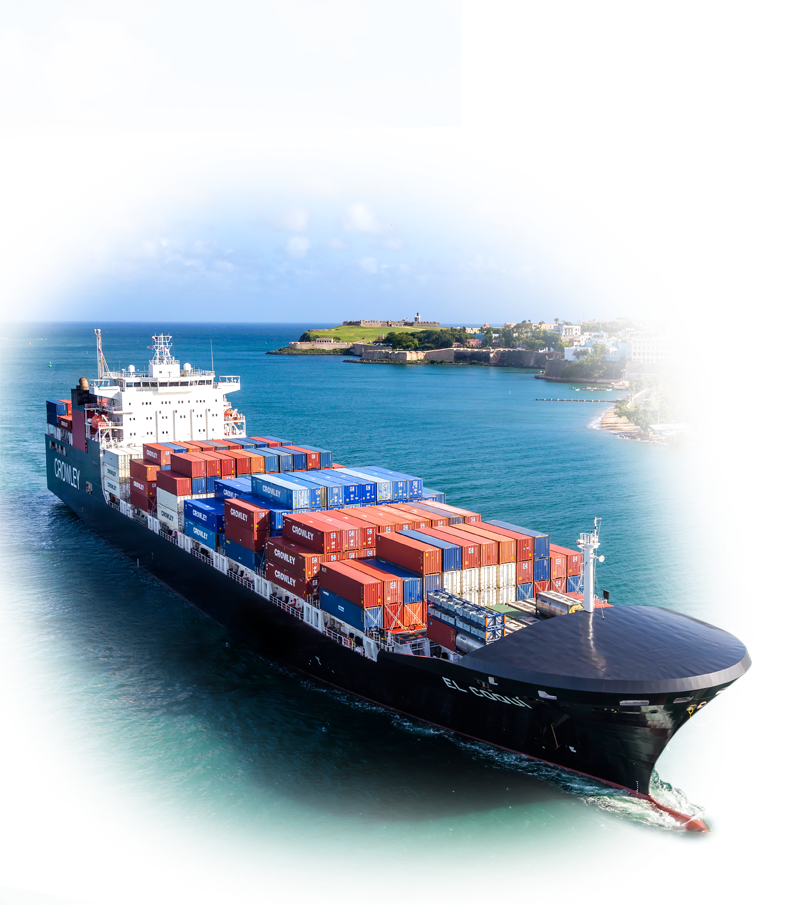Top Five Advantages of Ocean Freight Shipping
Ocean freight shipping offers five key advantages: cost-effectiveness, high efficiency, oversized cargo capabilities, safety, and environmental friendliness. These benefits make it one of the most reliable and economical options for transporting goods globally—especially in large volumes.

Top Benefits of Ocean Freight Shipping
- Cost-effective for long-distance shipping
- Highly efficient for bulk cargo
- Oversized cargo capabilities
- Safe and secure
- Better for the environment
These benefits make it one of the most reliable and economical options for transporting goods globally—especially in large volumes.
Ocean freight shipping is a cost-effective option for shippers who need to send cargo internationally. As one of the oldest methods of freight transportation, it’s also one of the most available since oceans and waterways cover most of our planet. In fact, more than 90 percent of the goods transported globally are carried by the international shipping industry. But with alternative options such as air, road, and rail transportation, why should a shipper consider ocean transport? Read on to learn the top five benefits.
What are the advantages of ocean freight shipping?
When considering the best method for transporting goods, ocean freight shipping stands out for several compelling reasons. Here are the top five advantages:
1. Cost-Effective for Long-Distance Shipping
The ocean shipping industry offers the most competitive freight costs to shippers, especially over long distances. In many cases, shipping by sea is four to six times less expensive than air freight, especially when moving high-volume or heavy goods. The cost savings are most notable over long distances and when large quantities are involved.
2. Efficient Sea Freight for Bulk Cargo
Sea freight provides scalable options for cargo of all sizes. Smaller shipments can be combined with others using less-than-container load (LCL) shipping, while larger loads benefit from full container load (FCL) options. This flexibility allows ocean carriers to maximize vessel space and transport efficiency.
3. Best Shipping Option for Oversized and Heavy Cargo
Ocean shipping is uniquely suited for transporting oversized, heavy, or bulky cargo—items that are difficult or impossible to move by air or road. Examples include industrial machinery, large vehicles, wind turbine components, and construction equipment. These are typically classified as breakbulk or Not in Trailer (NIT) loads.
4. Safe and Reliable Ocean Shipping
The maritime industry is governed by strict international regulations, particularly when it comes to transporting hazardous or sensitive materials. Cargo is sealed in containers that offer strong protection against theft and weather exposure. Technological improvements have contributed to a long-term trend of decreasing cargo loss and incidents at sea.
5. Eco-Friendly and Sustainable Shipping Solution
Among all freight transport modes, ocean shipping produces the lowest carbon emissions per ton-mile. The maritime industry is also making strides toward sustainability through:
• Adoption of cleaner fuels like liquefied natural gas (LNG) and biodiesel
• Vessel design improvements that reduce drag and fuel use
• Testing of solar and wind-assisted propulsion systems
• Innovations to reduce air and water pollution
For insights into environmentally conscious logistics, explore Sustainability at Crowley.
What are disadvantages of shipping by sea?
While ocean freight is cost-effective for large and heavy shipments, it typically has longer transit times compared to air freight. It may not be ideal for urgent or time-sensitive cargo, and it can also be less cost-effective for small-volume shipments. However, for many use cases, the volume and environmental benefits offset these limitations.
How much does it cost to ship by sea?
Several factors influence ocean freight rates, including:
• Shipment size and weight
• Distance between origin and destination
• Type and classification of cargo
• Market demand and seasonal trends
While rates fluctuate, ocean shipping remains among the most affordable methods for transporting high-volume freight across global distances.

Interested in learning how you can ship your cargo with Crowley’s ocean shipping services?
Get in touch with our team of knowledgeable experts! Crowley offers a variety of ocean shipping services, including full container load (FCL), less than container load (LCL), breakbulk, and ro/ro shipping. Crowley also offers specialized services for shipping vehicles, refrigerated goods, and other special cargo. In addition to shipping cargo by sea, we help customers with all aspects of their supply chain, including inland trucking, customs clearance and warehousing and distribution.